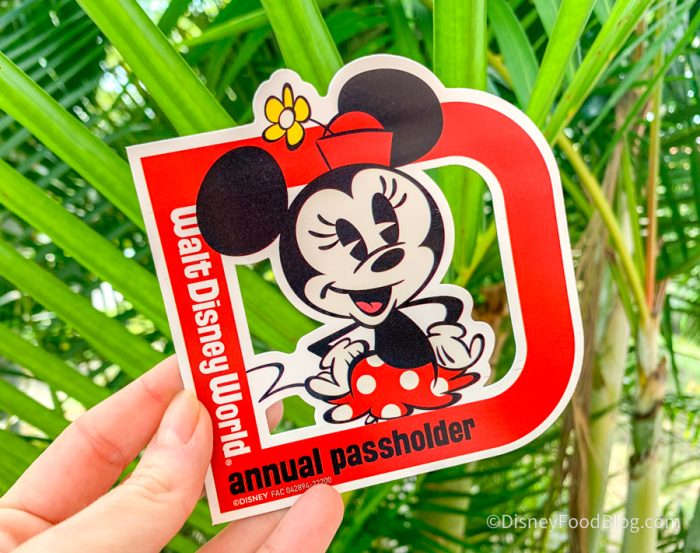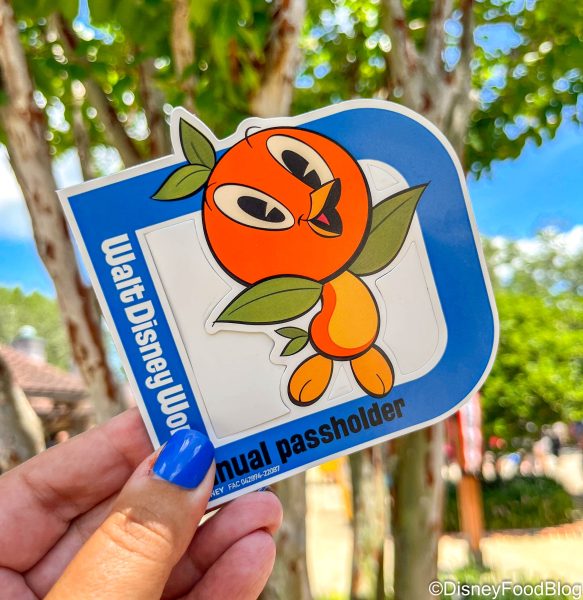There’s a LOT going on with the Walt Disney Company right now.
Bob Iger has instituted some massive restructuring, there have been a variety of changes with the executive leadership, and more adjustments are surely on the way. Amidst all of that, Disney is in the middle of some big lawsuits — one of which involves Annual Passholders and the Park Pass system, and we’ve got some important updates about it.
The Lawsuit
First, let’s go over the basics of this lawsuit. It was filed back in October of 2022 by some Disney World Annual Passholders against Walt Disney Parks and Resorts. We’ve shared a number of updates about it, most recently in mid-February 2023, at which point the third amended complaint had been filed.
Essentially, the Plaintiffs have argued that the Disney Platinum Pass and Platinum Plus Pass had no blockout dates, and that was a material term of their contracts. They also discuss how important Park Hopping is as part of the Annual Pass. Then the Park Pass system was introduced and reportedly changed things.
The complaint alleges that the Plaintiffs “reasonably believed” that the Park Pass system “would only be temporary and would end once the threat of the pandemic lessened…However, this was not the case. Disney used the Park Pass Reservation System during the pandemic and post-pandemic to maximize its profits.”
They claim:
- Disney has restricted Passholder access to the parks and “effectively unilaterally modified all Platinum Pass holders’ contracts.”
- Park Hopping has become restricted.
- “Disney is unilaterally and unfairly favoring single-ticket purchasers and multi-day ticket purchasers, while restricting Platinum Pass holders, in order to make a larger profit.”
- Disney has “abused a global pandemic to take advantage of its own loyal customers and increase its revenue.”
- “Disney is doing nothing more than taking advantage of customers who pre-paid a premium for unlimited access, by limiting these same customers’ access to the parks, so Disney can charge new guests at the expense of the annual pass holders that had already pre-paid.”
For a full look at the complaint, you can click here. But now there have been some developments in the case.
The Latest Update
On February 15th, 2023, the Defendant (Disney) filed their motion to dismiss the complaint. In the motion, Disney argues that annual passes are governed by certain express terms and conditions, and Disney reserved the right to CHANGE those terms (and park access).
According to Disney, the Plaintiffs are trying to allege that Disney’s actions violated some implied contract terms (or did some other things). But Disney insists that their “contractually permissible changes did no such thing.”
Disney claims that the express terms that govern annual passes don’t bar Disney from using the Park Pass system but instead allow Disney to “modify, at will, the terms governing park access.”
Disney then goes on to detail how it instituted the Park Pass system as a result of the pandemic and reportedly took “extraordinary measures to accommodate its annual passholders in this transition,” providing them with options for refunds, suspending monthly payments, and allowing them to opt out of their passes.
According to Disney, much of the Plaintiffs’ lawsuit centers around the allegations surrounding blockout dates — with the Plaintiffs reportedly arguing this was both an implied and express contract term.
Disney insists that the Plaintiffs did NOT have an implied contract with Disney. Instead, they argue that they only had an express contract that provided that “parks, attractions, or entertainment may change or be discontinued without notice and without liability, and that the terms and conditions governing their passes were subject to change.”
Disney insists that the Plaintiffs’ can’t revive their complaint now by doing something they knew would be legally fatal — “shoehorning a new, ill-fitting claim for breach of express contract into their complaint.” Why is it legally fatal? Well, Disney claims that its express terms and conditions make “no express promise ‘to supply the Platinum Pass with no Blockout Dates.’” Instead, they argue that their terms allow them to modify passholders’ park access at will.
Reportedly, the Plaintiffs pointed to some marketing on the Disney website advertising “no blockout dates” in support of their arguments, but Disney argues that those marketing terms shouldn’t matter since they weren’t part of the express terms and conditions of the pass. Even if the marketing terms do apply, Disney argues that the Plaintiffs’ claims would fail because Disney’s terms and conditions specify that the pass entitlements are subject to change.
Disney also argues that the matter at issue (dates that are unavailable on the Park Pass calendar) do not constitute blockout dates. They allege these were not dates on which Plaintiff’s passes were “not eligible” to hold reservations. Instead, they seem to be arguing that these were just days that had filled up because others had already booked up the available spots.
In response to the Plaintiffs’ argument that Disney is limiting the number of Park Passes made available to Passholders on any given day, Disney argues that this is different than blockout dates. Disney points out that the Plaintiffs don’t argue that Disney closed those dates to ALL Platinum Passholders, but only that there were some dates where the Platinum Passholders couldn’t get reservations because other Passholders had already taken up all the spots. Disney claims this doesn’t constitute a blockout date.
Disney goes on to note that any advertising indicating that the Platinum Passes have “no Blockout Dates” isn’t deceptive or unfair because Disney’s actions don’t constitute blockout dates.
Overall, Disney argues that the complaint (for the various reasons pointed out above and more discussed in the motion) should be dismissed.
So what happens now? Well, the Plaintiffs filed a motion for an extension of time to file their response to this motion to dismiss. That motion was granted and they now have until March 22nd to file a response to Disney’s arguments.
After that, the motion could be heard by a judge and a decision could be made as to what claims (if any) will be allowed to move forward in the case. We’ll be on the lookout for more details on that.
In the meantime, you can click here to learn all about the Annual Pass program or click here to make sure you know the ins and outs of Park Passes. Stay tuned for more news.
Click here to learn about another lawsuit Disney is involved in
Join the DFB Newsletter to get all the breaking news right in your inbox! Click here to Subscribe!
Don’t Miss Out on Any Disney Fun!
Order Your Copy of the 2023 DFB Guide to Walt Disney World Dining Today!
 With more than 900 pages, the 2023 DFB Guide to Walt Disney World Dining is full of tips and planning tools developed by Disney World experts over 30+ years of visits. We’ve done the research for you, so you’ll know just which spots will uniquely suit your family’s needs!
With more than 900 pages, the 2023 DFB Guide to Walt Disney World Dining is full of tips and planning tools developed by Disney World experts over 30+ years of visits. We’ve done the research for you, so you’ll know just which spots will uniquely suit your family’s needs!
You’ll get a Reference Guide, a 101 Plan, and a Printables and Resources Guide! With mini-reviews of every single restaurant, bar, lounge, kiosk and more; an entire chapter on the best snacks in Disney World; full Disney Dining Plan analysis; and a full chapter on discounts and deals; you’ll have everything you need to plan your best vacation yet.
Click here to order your copy of the 2023 DFB Guide to Walt Disney World Dining E-book with code WDW2023 to save 25% off the cover price today!
Use code WDW2023 at check-out for 25% off the cover price today!

Our guides are backed by a 100% money-back guarantee, so you have nothing to lose. 
What do you think about the Park Pass system? Tell us in the comments.
The post “Legally Fatal” — Breaking Down Disney’s Response to the Park Pass Lawsuit Filed by Annual Passholders first appeared on the disney food blog.











